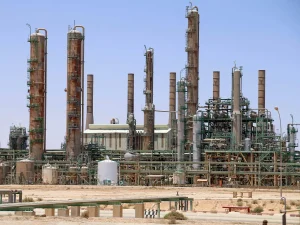Heat and Crisis Impact Tunisia’s Wine Industry

Tunisia’s soaring temperatures have hit the country’s small wine industry, according to Reuters, September 7.
The North African region has experienced drier and hotter spells, particularly over the summer time. The change in weather has left farmers and vintners in uncertainty as the heat has destroyed grapes.
In late July of this year, temperatures rose to just over 50 degrees celsius in Tunisia, resulting in residents experiencing power cuts.
Similarly, in neigbouring Morocco, the country’s meteorological service recorded temperatures of 50.4 degrees celsius in Morocco’s southern city of Agadir on August 11.Amidst the heatwaves, this was the highest temperature ever recorded.
READ: Tunisians sleep on beach at night to cope with 50C heatwave
In France and other nations in Southern Europe, winemakers have feared for their futures warning that there would be a lower wine output this year.
Wadji Graya, a farmer in Tunisia, has noted that his own wine production has decreased between two fifths and three fifths due to harsh temperatures July.
Mr. Graya stated, “Climate change has impacted both the quantity and quality of production, with a broad effect on the sector. We have delayed harvesting the crop to achieve acceptable sugar levels in the grapes, but it will inevitably affect quality”.
Tunisia, who gained their independence from the French in 1956, was a key wine producer under the Roman Empire and wine output on a commercial scale was high again during France’s colonisation.
Graya added, “This year farmers are suffering. Some couldn’t harvest any grape clusters from their crops. Anything that wasn’t irrigated yielded nothing and although watered crops fared a bit better, most farmers were badly affected.”.
Despite the shortages of wine, amongst other items, in Tunisia, supermarkets have a sizeable stock of locally produced wines, many of which were made in the country’s northern region (in the fertile hills close to the base of the Cap Bon peninsula).
The North African country has suffered from many shortages recently which have led to protests breaking out in the capital city, Tunis.
READ: Tunisia’s fragile finances amidst bread crisis
Droughts and the change in climate have resulted in a wheat shortage, forcing Tunisia to rely on imports which have further strained the government’s fragile finances.
President Kais Saied and his government are seen as being unable to resolve social and financial crises, therefore putting a target on the back of the President who has been the office holder since late 2019.
REUTERS
Want to chase the pulse of North Africa?
Subscribe to receive our FREE weekly PDF magazine













